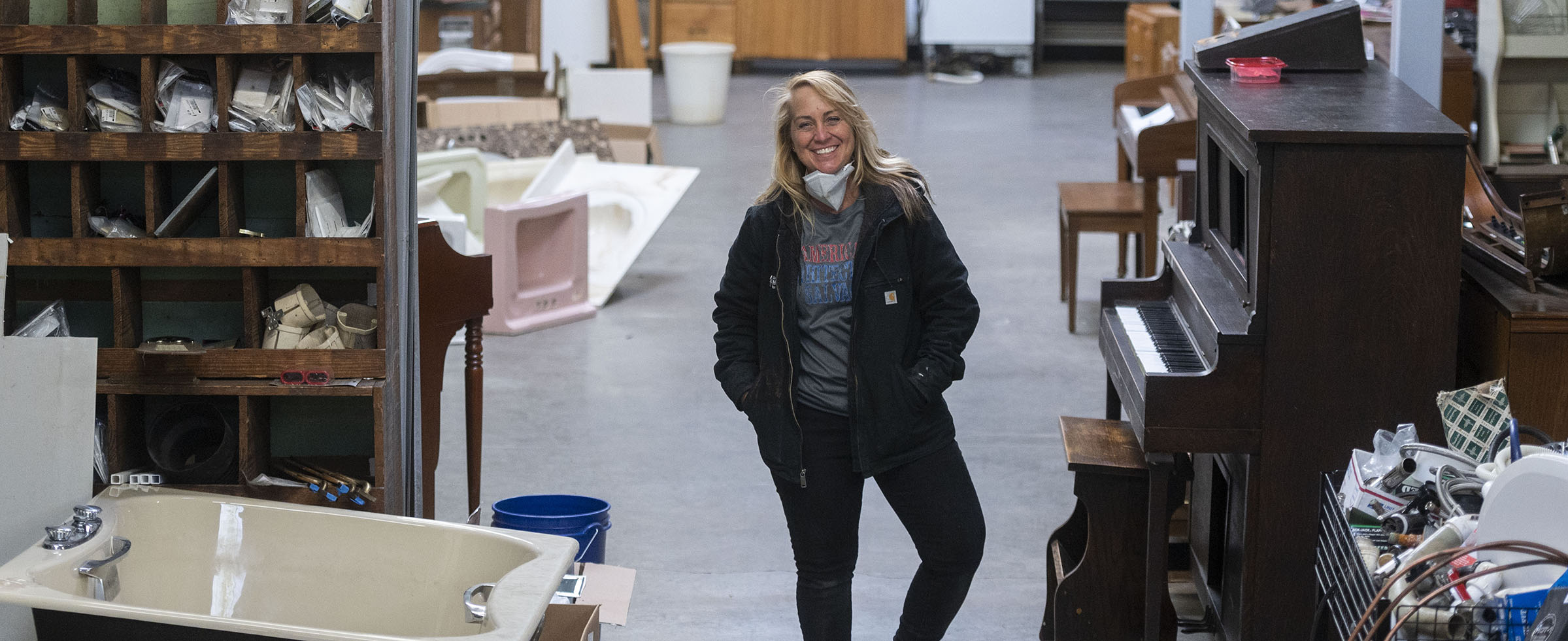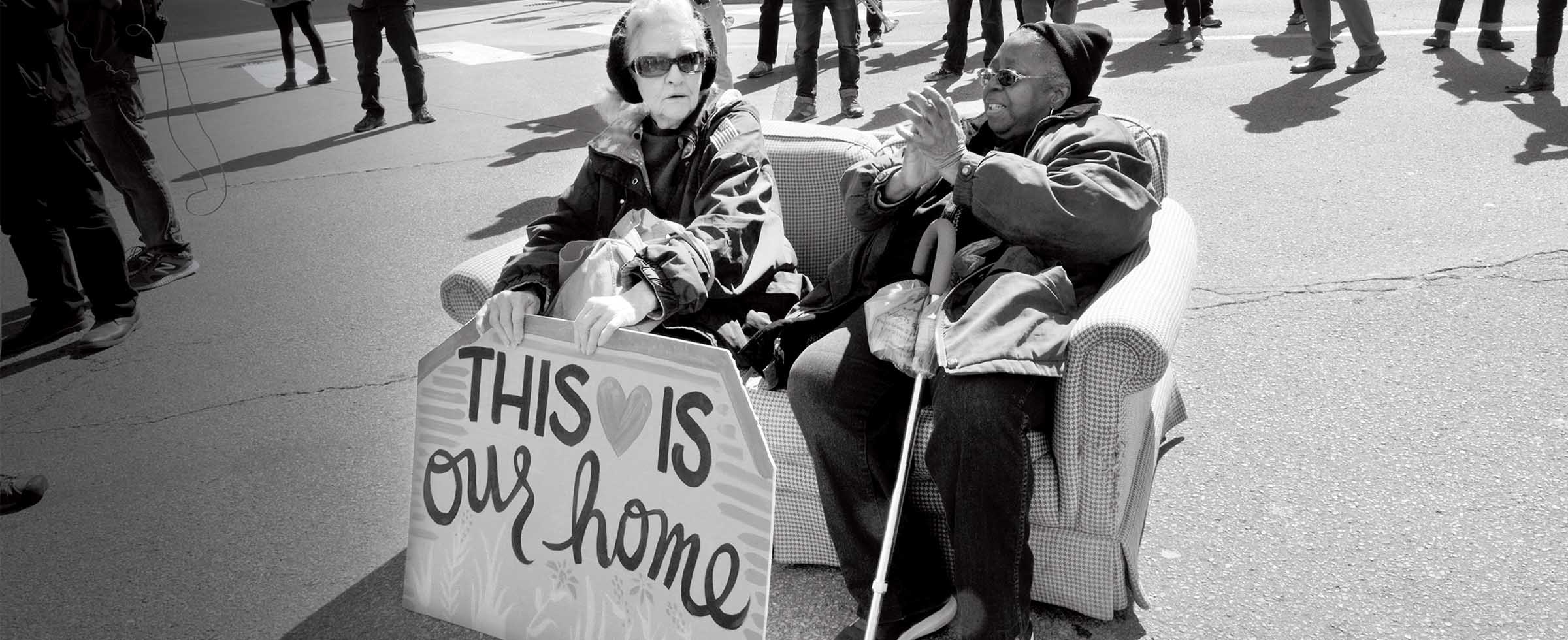The power of storytellingThe Pittsburgh Foundation communicates in more ways than ever before, using the power of stories to celebrate what works, to learn what doesn’t and to advocate for those most in need.

David Zubik (right), bishop of the Roman Catholic Diocese of Pittsburgh, discusses the harmful effects of the state budget impasse at a news conference called by Maxwell King, president and CEO of The Pittsburgh Foundation (center), and Robert Nelkin, president and CEO of United Way of Southwestern Pennsylvania (left).
DESPITE THE CLEAR, CRISP OCTOBER DAY, the mood inside the David L. Lawrence Convention Center was somber. Leaders from Pittsburgh-area human services nonprofits crowded into a conference room for a session called “People Living and Working in Poverty,” led by Maxwell King, president and CEO of The Pittsburgh Foundation, and Bob Nelkin, president and CEO of United Way of Southwestern Pennsylvania. At that point, Pennsylvania’s infamous budget impasse had dragged on for four months, preventing $765 million in state funding from flowing to human services providers.
Nonprofit leaders’ anxiety and anger were palpable.
“We got an earful,” says King. “Human services providers felt that they didn’t have a voice with their legislators, and understandably so.”
The impasse had created a climate of fear and dread. One nonprofit worker after another wondered aloud how to continue serving clients without funding or a strong voice to represent them. How long could the situation continue? What would happen to those who spoke out?
“We realized we had to convert the outrage in the room into advocacy on behalf of human services providers,” says King. “We felt compelled to capture the very real pain nonprofit staff members were feeling and to share their stories with as many people as possible, including state legislators and the governor.”
King and Nelkin quickly organized the first-ever statewide coalition of community foundations and United Way organizations in order to demonstrate the funding community’s unified stance against budgetary abuse of the human services sector. The Greater Pittsburgh Nonprofit Partnership joined the coalition, as did Grantmakers of Western Pennsylvania. The group grew to 34 members, including The Philadelphia Foundation, the Philanthropy Network of Greater Philadelphia and the United Way of Chester County.
The coalition’s top priority was to capture the human toll of the budget gridlock. Thus began the PA People Count campaign: a statewide effort to collect the stories of those held hostage by the impasse. Equipped with cameras and microphones, interview teams visited domestic violence shelters, food banks, after-school programs, day care centers, job training programs and veterans’ organizations. They recorded raw conversations that captured the effect of the impasse on nonprofits and the pain that clients would endure if their services stopped. Executive directors weighed in, agonizing over borrowing money, laying off staff and dipping into reserves to keep their doors open.
In a matter of weeks, the campaign created 67 video testimonials, 17 internet memes and the state’s most comprehensive list to date of legislators’ social media handles and email addresses. From Nov. 6 through Dec. 31, more than a million interactions took place between the campaign and the online public, many of them initiated by nonprofits that adopted the #PAPeopleCount hashtag as they made their own videos and memes. Countless calls and emails went directly from constituents to legislators, demanding full funding for human services providers.
On Dec. 11, the coalition organized the “Enough is Enough” news conference in Pittsburgh, calling on legislators and the governor to do their jobs. Decrying the impasse were Laura Ellsworth of the Greater Pittsburgh Chamber of Commerce, Morgan O’Brien (now a Foundation board member) of Peoples Natural Gas and chair of the Allegheny Conference, Adrienne Walnoha of Community Human Services, and Cynthia Shapira, chair of the Jewish Federation. Bishop David Zubik of the Roman Catholic Diocese of Pittsburgh opened the conference by calling for a fair budget resolution.
Despite it all, the legislature and governor remained unmoved.
Their inaction revealed a much larger problem: Harrisburg’s apathy and lack of accountability to the people of Pennsylvania. For King, this signaled a new responsibility for community foundations: to speak together and loudly during times of gridlock.
“We are fortunate to have communications and advocacy resources at the Foundation,” says King, “and we intend to use them to fight for the funding that human services nonprofits need in order to thrive.
As a community foundation, we’re entrusted with the charitable will and assets of thousands of individuals, and with that trust comes a moral imperative to speak clearly and forcefully about donor priorities and the nonprofits we support. "We’re going to fight for what matters most.”
Original story appeared in the 2015-16 Report to the Community





